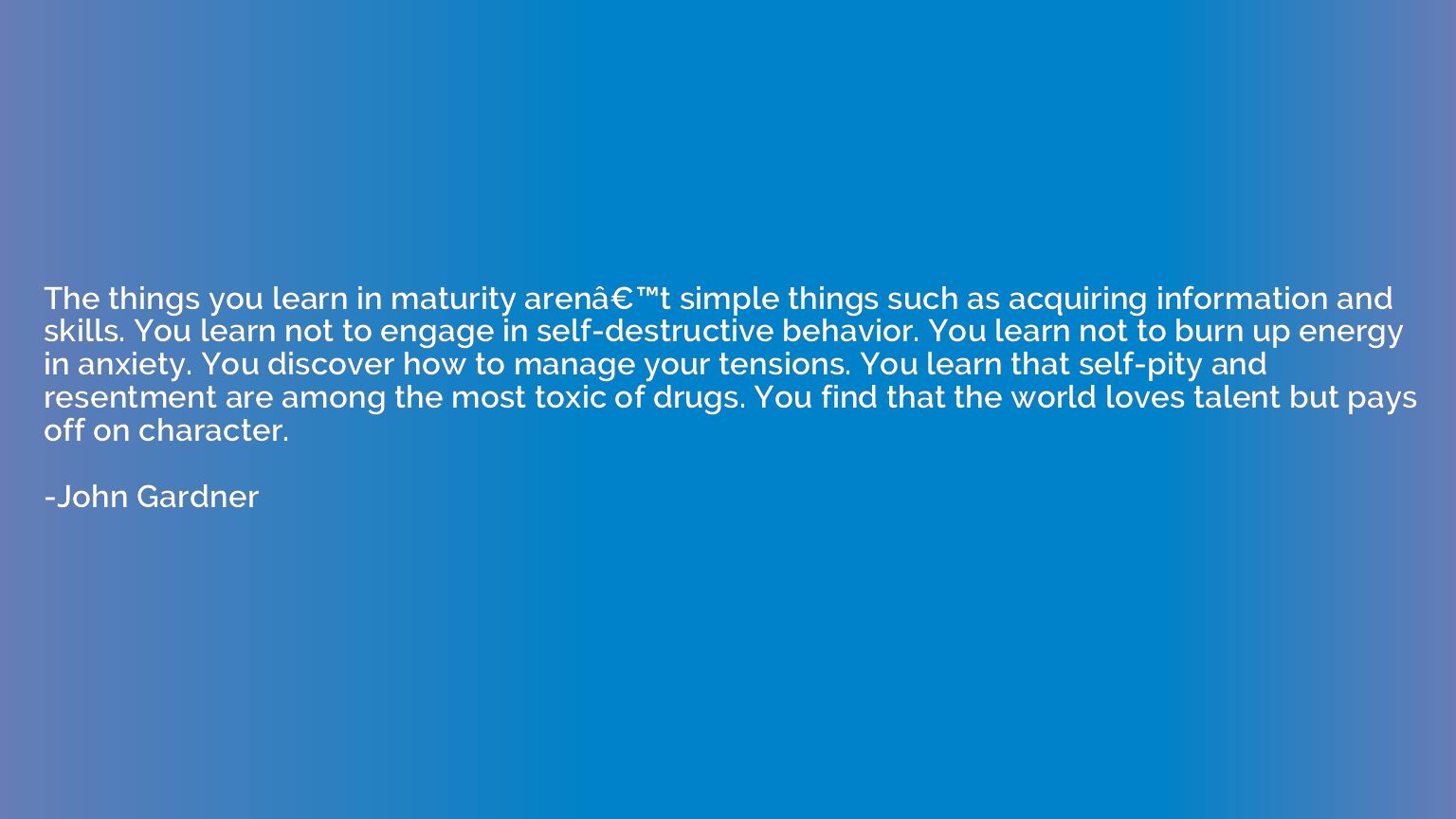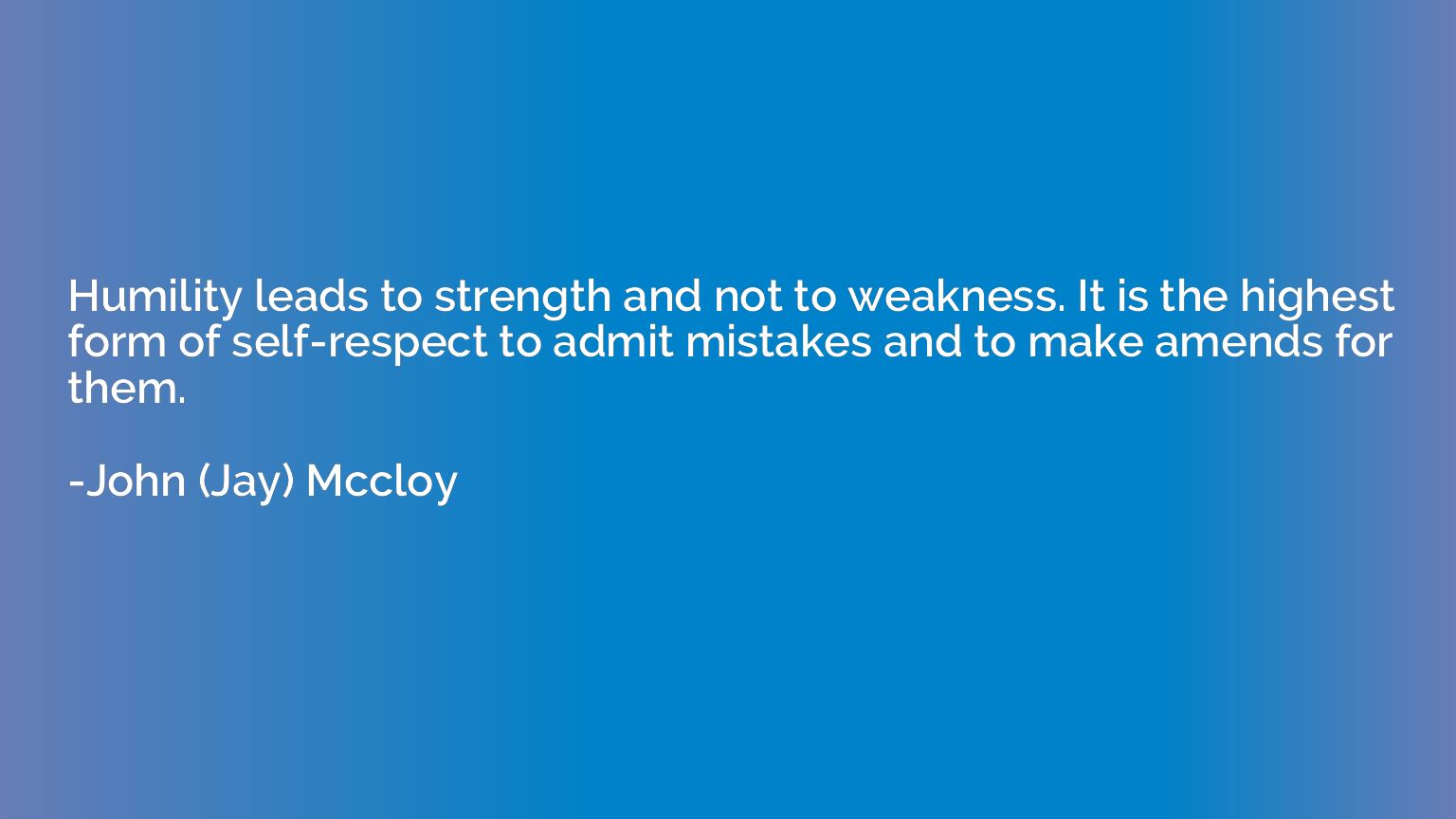Quote by John Gardner
The things you learn in maturity aren’t simple things such as acquiring information and skills. You learn not to engage in self-destructive behavior. You learn not to burn up energy in anxiety. You discover how to manage your tensions. You learn that self-pity and resentment are among the most toxic of drugs. You find that the world loves talent but pays off on character.

Summary
This quote highlights the idea that maturity involves more than just acquiring knowledge and skills. It emphasizes the importance of developing emotional intelligence and personal growth. Maturity is about learning how to avoid self-destructive patterns, managing stress and anxiety, and recognizing the harmful effects of self-pity and resentment. It also underscores the notion that while talent may be appreciated, it is ultimately one's character that brings true rewards from the world. Ultimately, maturity encompasses wisdom and the ability to navigate life's challenges in a more balanced and positive way.
By John Gardner














